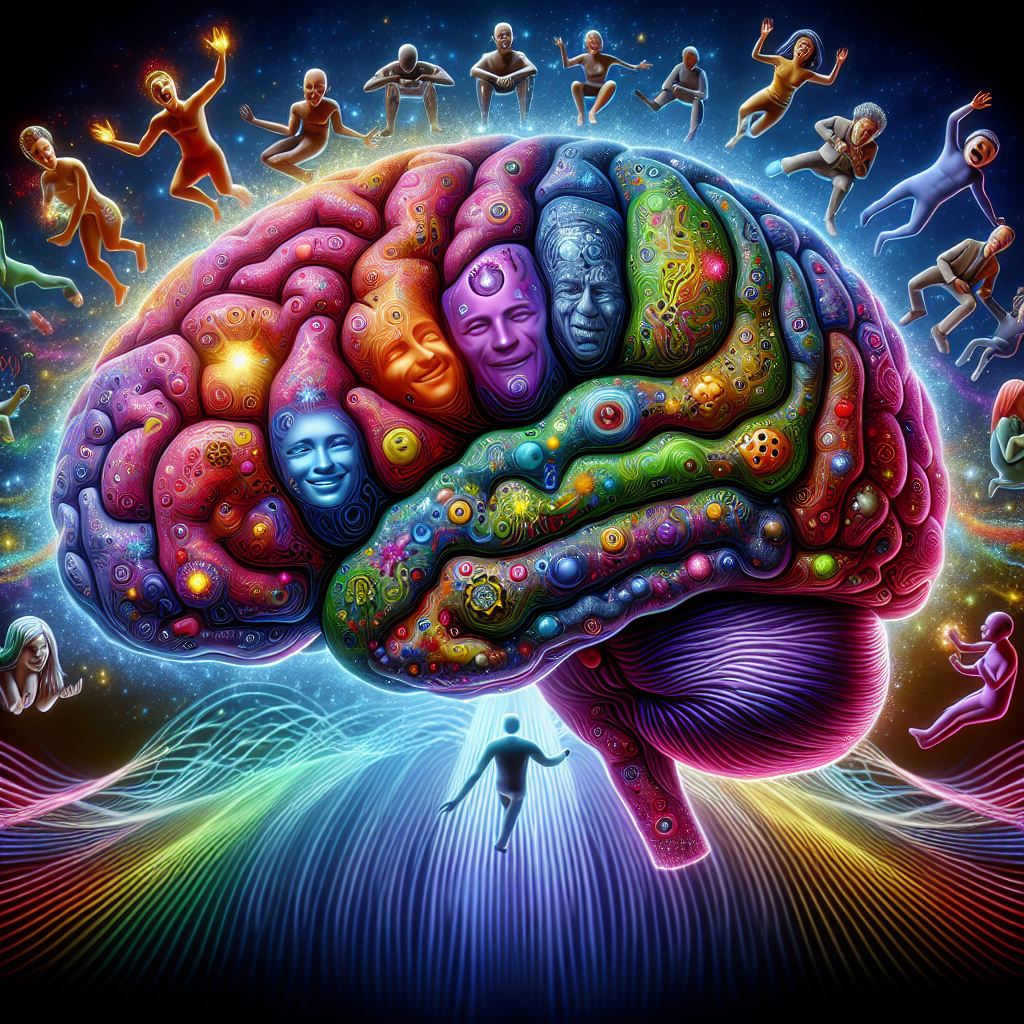Understanding Emotions and the Brain
Emotions are an integral part of the human experience, influencing not just how we feel but also how we think and function daily. The intricate relationship between emotions and cognition plays a pivotal role in shaping our decision-making, problem-solving, and overall mental health. Understanding this connection allows us to better navigate our feelings and enhance our cognitive abilities.
The Science Behind Emotions
Emotions are generated by complex interactions within the brain. The limbic system, often referred to as the “emotional brain,” is a core player in this process. Key structures within this system, including the amygdala, hippocampus, and hypothalamus, process emotional responses and regulate emotional reactions.
The amygdala, responsible for generating feelings of fear and pleasure, acts as the brain’s alert system. It helps us respond to threats promptly, which can be crucial for survival. Meanwhile, the hippocampus is involved in forming and recalling memories, often attaching emotional significance to them. This interaction highlights how our emotional state can affect our memory and cognitive processes.
How Emotions Influence Cognitive Function
The influence of emotions on cognitive function can be categorized into several key areas:
1. Decision Making
Emotions can significantly impact our decision-making processes. Research has shown that feelings of happiness can promote more optimistic decision-making, while sadness might lead to more cautious behaviors. This emotional bias often steers people toward choices that may not always align with logical reasoning.
2. Memory Retention
Emotions play a crucial role in memory consolidation. Studies indicate that emotionally charged events are more easily remembered than neutral ones. This is because the amygdala interacts with the hippocampus during emotional events, reinforcing the memory. For instance, think about a joyful wedding day versus an average Tuesday; the contrast in emotional significance makes the wedding day memorable.
3. Attention and Focus
Our emotional state can affect our attention levels. When we are happy or excited, we tend to focus better and be more engaged. Conversely, negative emotions like anxiety or sadness can lead to distractions, making it harder to concentrate. This fluctuation in focus can impact learning and productivity, emphasizing the need for emotional regulation, especially in educational and professional settings.
4. Problem-Solving Skills
Emotions also shape our problem-solving abilities. Positive emotions, like joy and satisfaction, foster creativity and open-mindedness, enabling us to approach problems from multiple angles. On the other hand, negative emotions can constrict thinking, leading to a focus on immediate solutions rather than innovative ones.
The Role of Emotional Regulation
Emotional regulation refers to the strategies we use to manage our emotional responses effectively. It’s essential for optimizing cognitive function and maintaining mental health. Techniques such as mindfulness, cognitive-behavioral strategies, and breathing exercises can help individuals modulate their feelings, mitigating the detrimental effects of negative emotions on cognitive abilities.
For example, practicing mindfulness can enhance attention and focus by grounding individuals in the present moment. By recognizing and accepting their emotional states without judgment, people can prevent emotions from overwhelming their cognitive processes.
Practical Applications
Understanding the interplay between emotions and cognitive function can have profound implications in various fields, including education, workplace management, and mental health therapy. Here are some practical applications:
In Education
Educators can foster a positive emotional environment to enhance learning and retention. Incorporating emotional intelligence into the curriculum can prepare students to recognize and manage their emotions, leading to improved academic performance and interpersonal relationships.
In the Workplace
Employers can create a supportive work environment that promotes emotional well-being, encouraging employees to engage and contribute creatively. Training in emotional intelligence can equip employees with the skills to manage workplace stress and enhance team collaboration.
In Therapy
Therapists can leverage the understanding of emotions and cognition to develop effective therapeutic strategies. By helping clients identify and reframe their emotional responses, therapists can guide them toward healthier thinking patterns and improved emotional health.
Conclusion
Emotions and cognitive function are intricately linked, shaping how we perceive the world, make decisions, and solve problems. By gaining a deeper understanding of this relationship, we can develop strategies for emotional regulation that not only enhance our cognitive abilities but also improve our overall well-being. As we continue to explore the realms of neuroscience and psychology, we can harness this knowledge to lead fuller, more mindful lives.
FAQs
What is the role of the amygdala in emotions?
The amygdala plays a key role in processing emotions, particularly fear and pleasure. It helps to trigger our emotional responses to various stimuli, influencing our behavior and decision-making.
Can emotions affect memory?
Yes, emotions significantly influence memory. Emotionally charged experiences are often retained more easily than neutral ones, thanks to the interaction between the amygdala and hippocampus.
What are some strategies for emotional regulation?
Effective strategies for emotional regulation include mindfulness meditation, cognitive restructuring, breathing exercises, and engaging in physical activity. These techniques help individuals manage their emotional responses and reduce the negative impact on cognition.
How do positive emotions enhance cognitive performance?
Positive emotions can enhance cognitive performance by fostering creativity, promoting open-mindedness, and improving focus and attention, all of which contribute to better problem-solving skills.





